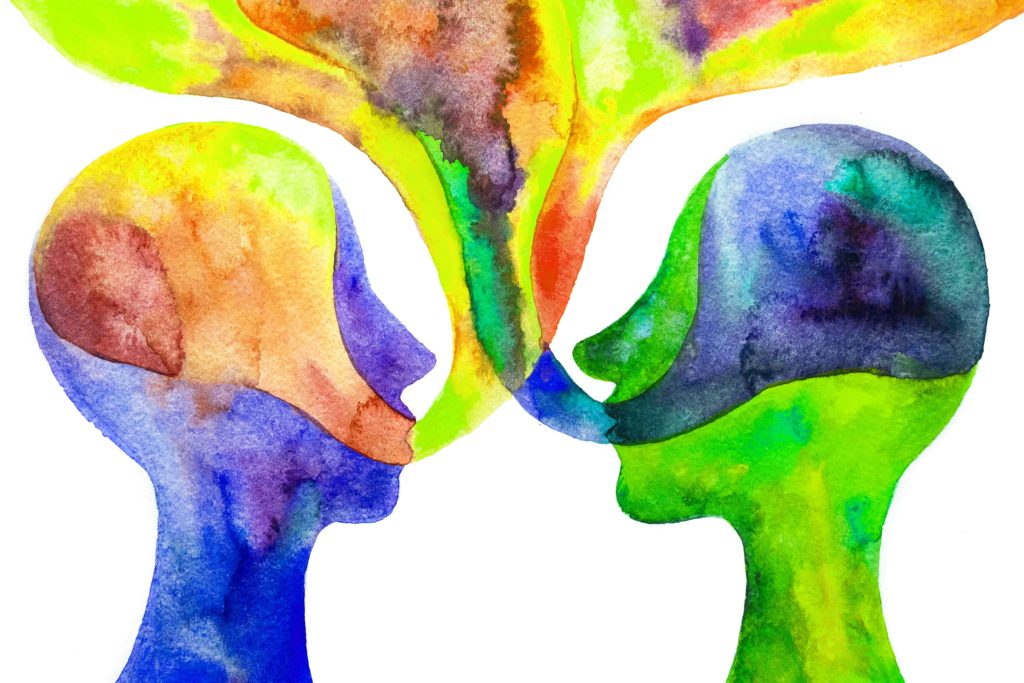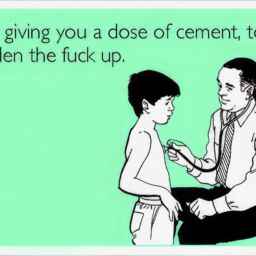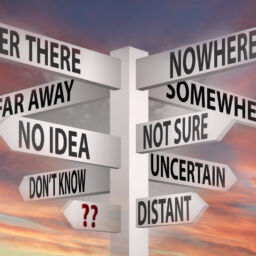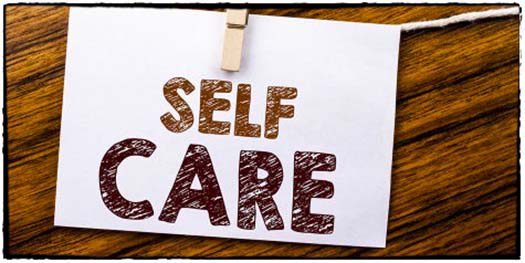We are living in a very strange world and it’s very normal to feel a certain way about.
To feel overwhelmed.
Anxious.
A little confused.
Yes, life can be hard, very hard, and it’s very normal to have ups and downs in life and that goes for everything.
Work.
Relationships.
Exercise and diet.
Family and friends.
Motivation.
And yes, mental health.
It’s normal to have these ebs and flows in life and the same goes for your mental health and the first thing you need to focus on and do is to become aware of how you feel.
Some days you’re going to feel great. Other days you’re gonna have to remind you that it’s okay to be not okay.
It’s normal and we all go through it.
It’s a part of being human.
I would like to encourage you to take a few moments to yourself and take stock of where you’re at and how you feel so that you can intervene, if necessary, before things get to the place where it affects your daily life and life feels ‘out of control’ and ‘impossible’.

Based on a post from Nawal Mustafa, a PhD candidate in neuropsychology, I wanted to share the following with you and I hope you, or someone you know, might find some value in it.
Signs your mental health is sliding again
- You don’t feel like yourself anymore.
- You are more irritable or moody than usual.
- You are finding it more difficult to pay attention or concentrate.
- Your view of yourself and the world feels negative and cynical.
- You often feel exhausted or have low energy.
- You are starting to withdraw from friends and family.
- You have noticed a drop in your overall functioning.
- You are engaging more in self-sabotaging behaviors.
- You have noticed a change in appetite and/or sleep.
Let’s look at each one in a bit more detail and some signs and symptoms you could look for and be aware of.
- You don’t feel like yourself anymore.
- You look in the mirror and do not recognise yourself.
- You don’t feel excited or motivated to engage in things you used to enjoy doing before.
- You sometimes feel like you are observing yourself outside of your body (i.e. depersonalisation).
- You aren’t happy with yourself.
- You are more irritable or moody than usual.
- You have less patience for things you were previously able to tolerate.
- It is hard for you to let go of things.
- You are experiencing more negative emotions, such as low mood, exacerbated anxiety, disappointment, anger, irritability, overwhelm and hopelessness.
- You are finding it more difficult to pay attention or concentrate.
- You are unable to properly focus on tasks.
- You have a hard time making decisions.
- You are often losing track of time.
- It is difficult for you to remember things.
- You notice ourself feeling spaced out often.
- Your view of yourself and the world feels negative/ cynical.
- You have become highly critical of yourself.
- You feel stuck in your circumstances.
- You have lost trust in others.
- You find yourself overthinking often.
- It is hard for you to feel grateful.
- Your view of the world feels bleak.
- You often feel exhausted or have low energy.
- Your body physically feels sore or tense.
- It is becoming hard for you to do the basic activities in your life, such as taking a shower, cleaning your space, and moving your body.
- You feel like you are dragging yourself through the day.
- You are starting to withdraw from friends and family.
- You feel disconnected from others.
- You are starting to distance yourself from loved-ones.
- You have little to no interest in socializing.
- You feel apathetic toward relationships that are important to you.
- You have noticed a drop in your overall functioning
- You are finding it difficult to do tasks that you used to be able to do effectively before.
- It is becoming hard for you to meet deadlines.
- You feel unmotivated at work.
- It is becoming difficult for you to achieve personal goals.
- You are engaging more in self-sabotaging behaviors.
- You are making excuses for your unhealthy habits.
- You regularly break promises to yourself.
- You are not standing firm with your boundaries.
- You are not communicating your needs clearly.
- You are engaging in mindless activities a lot more.
- You have noticed a change in appetite and/or sleep.
- You are eating too much or too little.
- You have trouble falling or staying asleep.
- You are sleeping too much or too little.
- You wake up feeling tired.
Managing your mental health is a lifelong practise and something we should all be aware of and work on. There is literally no downside to focusing on your own mental health regardless of where on the continuum you find yourself.
Please, take a few minutes to be very honest and open with yourself.
Urge your friends and family to do the same.
Experiencing low days and dips in your mental health and how you feel is 100% normal and a part of being human, but being self-aware and being honest with yourself has zero downside!
Yes, you might realise that you are struggling.
Or anxious.
Or confused.
Or overwhelmed.
But knowing that, admitting that, is the first step to making a positive change.
It’s okay to be not okay.
It really is.
Even the act of talking about how you feel is a huge step towards feeling more in control, getting an understanding of why you feel a certain way and will give you, even if just a glimmer, of fresh perspective. Hope.
If you feel you need to share or talk about how you feel and how to not only understand but also manage your mental health, please get in touch.
Please share this with people close to you who might need it.
It’s okay to be not okay.
It really is. 🙏🏼

















